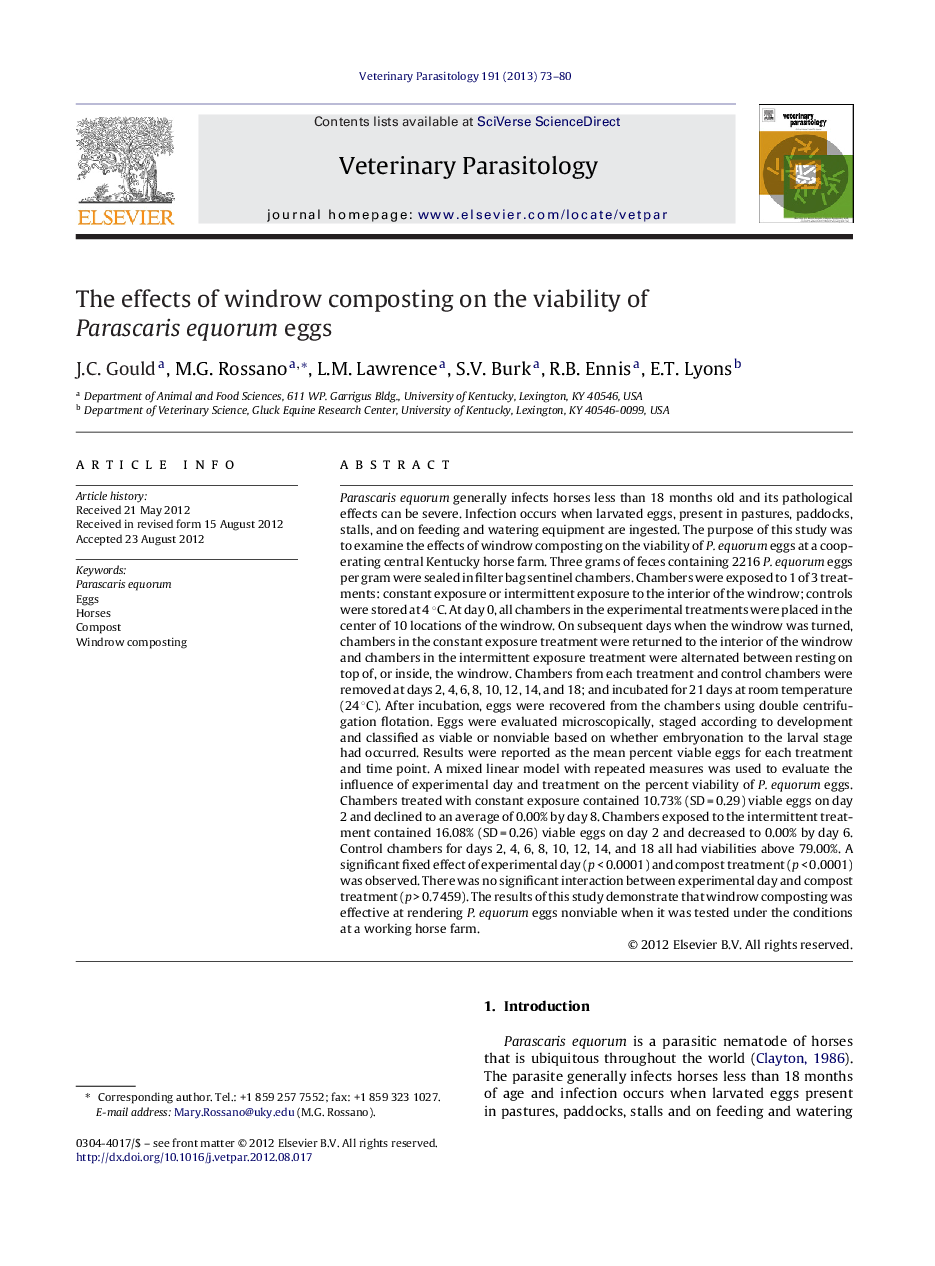| کد مقاله | کد نشریه | سال انتشار | مقاله انگلیسی | نسخه تمام متن |
|---|---|---|---|---|
| 5804378 | 1555706 | 2013 | 8 صفحه PDF | دانلود رایگان |

Parascaris equorum generally infects horses less than 18 months old and its pathological effects can be severe. Infection occurs when larvated eggs, present in pastures, paddocks, stalls, and on feeding and watering equipment are ingested. The purpose of this study was to examine the effects of windrow composting on the viability of P. equorum eggs at a cooperating central Kentucky horse farm. Three grams of feces containing 2216 P. equorum eggs per gram were sealed in filter bag sentinel chambers. Chambers were exposed to 1 of 3 treatments: constant exposure or intermittent exposure to the interior of the windrow; controls were stored at 4 °C. At day 0, all chambers in the experimental treatments were placed in the center of 10 locations of the windrow. On subsequent days when the windrow was turned, chambers in the constant exposure treatment were returned to the interior of the windrow and chambers in the intermittent exposure treatment were alternated between resting on top of, or inside, the windrow. Chambers from each treatment and control chambers were removed at days 2, 4, 6, 8, 10, 12, 14, and 18; and incubated for 21 days at room temperature (24 °C). After incubation, eggs were recovered from the chambers using double centrifugation flotation. Eggs were evaluated microscopically, staged according to development and classified as viable or nonviable based on whether embryonation to the larval stage had occurred. Results were reported as the mean percent viable eggs for each treatment and time point. A mixed linear model with repeated measures was used to evaluate the influence of experimental day and treatment on the percent viability of P. equorum eggs. Chambers treated with constant exposure contained 10.73% (SD = 0.29) viable eggs on day 2 and declined to an average of 0.00% by day 8. Chambers exposed to the intermittent treatment contained 16.08% (SD = 0.26) viable eggs on day 2 and decreased to 0.00% by day 6. Control chambers for days 2, 4, 6, 8, 10, 12, 14, and 18 all had viabilities above 79.00%. A significant fixed effect of experimental day (p < 0.0001) and compost treatment (p < 0.0001) was observed. There was no significant interaction between experimental day and compost treatment (p > 0.7459). The results of this study demonstrate that windrow composting was effective at rendering P. equorum eggs nonviable when it was tested under the conditions at a working horse farm.
Journal: Veterinary Parasitology - Volume 191, Issues 1â2, 16 January 2013, Pages 73-80